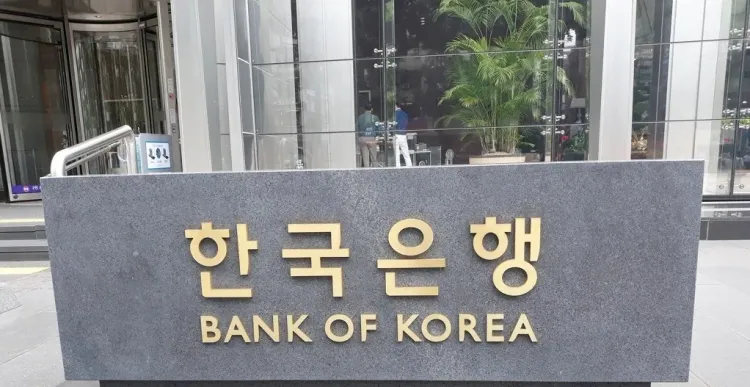BOK Cautions on Extended Market Instability Due to Tariffs

Synopsis
Key Takeaways
- The South Korean market may experience prolonged volatility.
- Trump's tariff policies are significantly affecting market conditions.
- Immediate market stabilization measures are deemed necessary.
- The KOSPI index dropped over 4% due to tariff announcements.
- Downside risks to the South Korean economy continue to mount.
Seoul, April 7 (NationPress) The South Korean market may experience increased volatility for a longer-than-anticipated duration as a result of the sweeping tariff policies introduced by the Donald Trump administration, the central bank stated on Monday, urging for immediate action to implement market stabilisation measures when required.
Bank of Korea (BOK) Deputy Governor Ryoo Sang-dai made this observation during an emergency task force meeting aimed at evaluating market conditions following the impact of Trump's tariff measures on both the domestic and international stock and foreign exchange markets, as reported by Yonhap news agency.
"The uncertainties surrounding the United States' approach to its tariff policies remain significantly high, and this situation may persist longer than initially projected. It is vital to closely monitor the financial and foreign exchange markets through a continuous surveillance system and to promptly deploy market stabilisation measures when necessary," Ryoo stated.
Trump has pledged to impose "reciprocal" tariffs on imports from various countries, including imposing 25 percent duties on South Korean goods, which are slated to take effect on Wednesday (U.S. time). Additionally, he implemented a 10 percent "baseline" tariff on foreign imports starting Saturday.
Ryoo and other officials characterized the recent tariff measures as "strong," expressing concerns that this could ignite a global trade dispute, according to the BOK.
Trump's tariff policy significantly impacted the local stock market on Monday, with the benchmark Korea Composite Stock Price Index (KOSPI) plummeting by more than 4 percent as of 11:30 a.m.
The South Korean currency also traded considerably lower against the U.S. dollar, approaching the 1,470 won mark, a level not seen in about 16 years since 2009.
The South Korean economy is currently facing "mounting" downside risks due to sluggish production and increased trade uncertainties triggered by U.S. tariffs, as stated by a state-run economic think tank on Monday.
"Recently, the Korean economy is under growing downward pressure as diminished growth in domestic and external demand has adversely affected production, and the U.S. tariff hikes have intensified global trade uncertainties," the Korea Development Institute (KDI) mentioned in its monthly economic assessment report.
The KDI has highlighted downside risks for Asia's fourth-largest economy for the fourth consecutive month.
While investments in equipment remain strong, ongoing sluggishness in construction investments and weak consumption growth are restraining the pace of domestic demand recovery, the KDI added.










